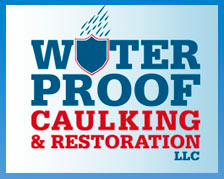Brick buildings are notorious for their longevity and aesthetic appeal. There’s just something pleasing about looking at a clean brick building with all of its symmetrical lines of mortar, and the strength of brick is hard to beat for its price point. That being said, even the hardiest of brick structures will need repair from time to time to stay in good condition. Most likely you’ll eventually need brick repointing.
Before you feel confident in committing to this project, though, you’ll first need to learn why you may need to repoint bricks in your commercial building and why failing to do so can cost you a lot more money down the road. Here’s what you should know about how repointing bricks works and what it can do for your commercial building.
What Does Repointing Mean?
The term “repointing” refers to a type of masonry repair that aims to fix cracks and other damage, especially to the mortar that holds the bricks together. You might have already encountered the term “tuckpointing,” and in fact, you may see that many sources use these words interchangeably. However, repointing is slightly different from tuckpointing.
Tuckpointing can be used to patch up areas where the mortar has been damaged, but that’s not the only reason that someone might tuckpoint their building. This process is also used to match the color of the mortar with the bricks or change the way the building looks. Masons will use a special installation called a fillet to help your mortar stand out against the bricks and create crisp, clean lines.
Repointing, on the other hand, is more concerned with truly getting down to the problematic areas and redoing them from the ground up. It is not typically done for aesthetic reasons. Because of this, repointing tends to be slightly less expensive than tuckpointing.
What Repointing Accomplishes for Your Bricks
The purpose of repointing is to fully remove damaged mortar and replace it with new material that tightly seals the space. Making sure that the mortar is functioning correctly is critical; without robust mortar to help your building diffuse its weight evenly downward, your commercial structure could face bulging walls, sagging bricks or even partial collapse.
It’s easy to see that this type of damage could be a hazard to the people who work in your building, but it can also impact your profits. Will you need to shut down some or all of your business when your mortar fails due to exposure to the elements or a dangerous section of the building? Repointing tackles this issue before it becomes a pressing problem.
Can You Do Repointing Yourself?
While it’s technically possible for someone to DIY it by chiseling out old mortar and packing new mortar in, repointing is a delicate process. Failure to properly support the building while the mortar is gone-and similar failure to install the new mortar correctly-can make your problems worse and lead to physical injury and severe damage to the commercial building. It is best to work with a professional mason who has experience in repointing commercial structures.
Identifying the Signs That It’s Time for Repointing
Repointing should be a regular part of any brick commercial building’s maintenance schedule. However, you’ll need to learn how to identify when repointing might be necessary. While it is always possible to have an expert come out and take a look at your building, knowing the signs of failing masonry can help you spot sudden or unexpected problems in between your normally scheduled maintenance calls. Be on the lookout for:
- Water intrusion – Part of the job that mortar accomplishes is creating a watertight seal for your building. If you’re seeing water damage or signs of a moist area, like mold growth, your mortar might need replacing.
- Cracks – Mortar helps the weight of your building spread out evenly among all bricks. When mortar isn’t doing this job, some bricks can take on more weight than they can handle, causing cracks. Be especially aware of cracks that look like stair steps, as these can indicate an urgent issue with load bearing.
- Flakes and chips – You can always inspect the mortar itself as well. It should be smooth and clean. If it’s starting to flake, chip or fall out, repointing is in order.
Trust the Pros to Help You Keep Your Masonry in Good Repair
Whether you’ve found some problematic areas in your brick or you would simply like some expert eyes on your commercial building, don’t hesitate to call for help. The professionals at Waterproof Caulking & Restoration would be happy to help you repoint any compromised areas so that your commercial brick lasts as long as possible. Reach out to learn more or to schedule an appointment to get started.
